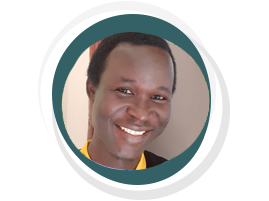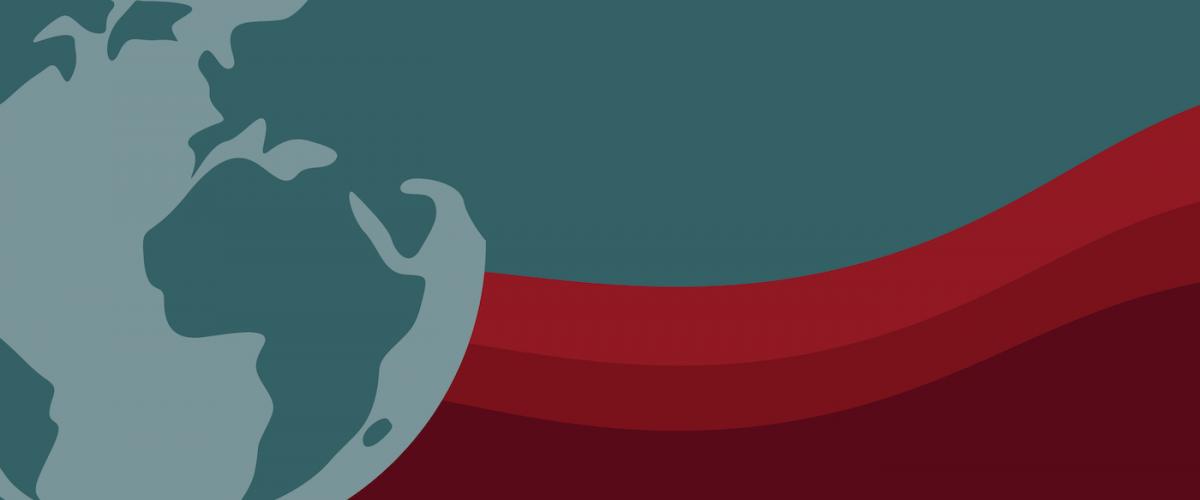Updates from the Field: Fogarty Global Health Fellows
The Fogarty Global Health Fellowship Program is a 12-month clinical research training program for post-doctorate trainees and doctoral students in the health professions, sponsored by the NIH’s Fogarty International Center.
In this Update from the Field, two past Fogarty Fellows share their experience with the program.
Dr. Abigail Link (“Abby”) researched the burden, causes, and patient experiences with Meningitis in rural Northern Uganda. Her mentors were Dr. David Meya (Makerere University), Dr. Andrew Kambugu (Makerere University), and Dr. Paul Bohjanen (UMN).
Dr. Simple Ouma researched childhood trauma and victimization among adolescents of female sex workers in Gulu, Northern Uganda. His mentors were Dr. Marina Kroupina (UMN), Dr. Catherine Abbo (Makerere University), and Dr. Nakita Natala (UMN).
What is the anticipated impact of your work?

Dr. Link: I hope that the work which started during my Fogarty Fellowship will inform further research to identify meningitis causes and to improve patient treatment options and outcomes. Additionally, having data on the types of meningitis found in this area will help support the initiation of a routine meningitis vaccine program that can prevent meningitis which is currently not available.
Dr. Ouma: Understanding the epidemiology of childhood trauma and victimization (CTV) among adolescents of female sex workers will help raise public awareness about the plight of adolescents of the marginalized parents in Uganda, the US, and elsewhere. Findings will inform advocacy and the development of targeted public health responses to CTV among children and adolescents of these disadvantaged populations.
What was the most memorable experience from your Fogarty Fellowship?
Dr. Link: I will remember and cherish my time in Uganda during the Fogarty year. My most rewarding moment was seeing a little boy who we all thought would have severe neurological and physical impairments due to the complications of his meningitis. He came back four months later walking, talking, and running around. This experience solidified that behind each data point we collect, there is a deeper, richer, and more profound reason why we do clinical research; to save and improve life.

Dr. Ouma: My most memorable experience was engaging female sex workers during the development, planning, and conduct of this very unique study. Without their advice and support, it would have been impossible to recruit the participants (adolescent children of female sex workers) in a country where sex work is illegal, highly stigmatized and thus something to hide away from your own children.
What advice would you give to future Fogarty Fellowship applicants?
Dr. Ouma: Fogarty Fellowship is a highly prestigious and competitive life-changing opportunity. Along the journey, one gets a lot of support from mentors, trainers and many other support systems. Personally, I learned so much from the process of application and selection as well as the mentorship and training during and beyond the fellowship year. Therefore, I strongly encourage everyone who dreams of becoming world leaders in Global Health to join this exciting journey.
Dr. Link: Have supportive and engaged mentors to help your project be successful. Start early to identify the partners you need to talk with and to get background information on what is feasible and culturally acceptable at your country site. Engage local staff early to incorporate suggestions and be flexible to pivot as needed.
What is next for you and your work?
Dr. Ouma: We have already submitted our first manuscript to a peer-reviewed journal. We are concurrently working on additional 2 manuscripts (see his ORCID profile). I am working on a newspaper article to create awareness of the health needs and needs to improve the well-being of children of female sex workers. In addition, we are scanning for opportunities/grants that can fund interventions to improve the health and well-being of children of female sex workers and children of other at-risk parents. Thanks to the Fogarty fellowship, I successfully competed for a PhD scholarship to pursue a PhD by research with the College of Health Sciences, Makerere University. In addition, I am pursuing a Master of Statistics for Clinical Trials at University College London.
Dr. Link: I am planning to apply for an assistant professor position and applying for an early career research award to continue my program of research in Uganda and in global health. Our team applied for an R21 last year and it was recently funded. We will be able to continue the work we started with the Fogarty Fellowship and collect more information on this topic to improve care, prevent meningitis, and save lives in Uganda and other parts of the world.
